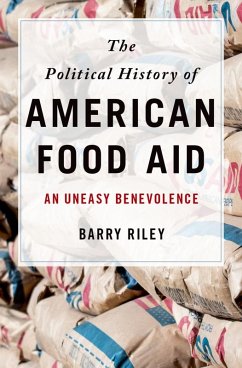
Development aid and transformation process in Africa (eBook, ePUB)
Sofort per Download lieferbar
Statt: 17,95 €**
15,99 €
inkl. MwSt. und vom Verlag festgesetzt.
**Preis der gedruckten Ausgabe (Broschiertes Buch)
Alle Infos zum eBook verschenkenWeitere Ausgaben:

PAYBACK Punkte
0 °P sammeln!
Seminar paper from the year 2008 in the subject Business economics - Economic Policy, grade: 1,8, Berlin School of Economics, course: Political Economy and Social Structure of Modern Society, language: English, abstract: The text "Demographic Transition in the Context of Africa's Development" by Uche C. Isiugo-Abanihe deals with Africa's development dilemma and the demographic transformation-process. The text says that since the 1950's there is a big population explosion in Africa because of a rapidly declining mortality rate and a high or stable fertility rate. The author figures out that the...
Seminar paper from the year 2008 in the subject Business economics - Economic Policy, grade: 1,8, Berlin School of Economics, course: Political Economy and Social Structure of Modern Society, language: English, abstract: The text "Demographic Transition in the Context of Africa's Development" by Uche C. Isiugo-Abanihe deals with Africa's development dilemma and the demographic transformation-process. The text says that since the 1950's there is a big population explosion in Africa because of a rapidly declining mortality rate and a high or stable fertility rate. The author figures out that there are three theories that cause Africa's development dilemma. The first one says that the population growth is the root of all the problems in Africa. The second one says, that population growth only place an accomplice role and that there are other problems leading mainly to the dilemma. And the third one says that Africa does not face any population problems at all. The author sticks to the second opinion and says, that there are many reasons (not only the population growth), which lead to Africa's problems. He thinks that poor management and organization, unequal distribution of wealth and political power, corruption and misappropriation of funds, massive military spending and misallocation and misdirection of resources and efforts all together added up to the development dilemma. This is definitely a point I would agree with. Abanihe also says that it is "the failure of many African governments to achieve well-planned and well-intentioned development goals and objectives. So in general I think his text gives a very good but general insight into Africa's situation to the time, when the text was written. A thing I'd like to criticize is the fact that Abanihe completely lefts out to mention the development assistance of western countries, that is distributed to Africa and that he does not go very much into detail with his suggestions for improvement. It seems like he really knows what Africa's problems are and he also knows what Africa did and does wrong but he does not figure out what Africa has to do to escape from the development dilemma. And exactly this is the point, where I want to join the complex of problems with my essay. With the help of newer sources I will summarize some ideas - especially the development assistance - and techniques that are and were applied on Africa to help that continent out of its dilemma. Some of the recommendations I figured out might be not the most current. They might refer on facts, that already Abanihe considered. A further Problem in Africa is that every country is in a different phase of development.
Dieser Download kann aus rechtlichen Gründen nur mit Rechnungsadresse in A, B, BG, CY, CZ, D, DK, EW, E, FIN, F, GR, HR, H, IRL, I, LT, L, LR, M, NL, PL, P, R, S, SLO, SK ausgeliefert werden.













